Analyzing your rental property’s performance shouldn’t be a once-a-year task—it should be part of your investment routine. Whether you’re managing a single unit or a growing portfolio in Hooper, UT, your long-term success hinges on understanding your numbers. From monthly cash flow to annual returns and asset appreciation, knowing what to track is just as important as collecting rent.
Smart investors go beyond surface-level metrics to examine the full picture of profitability. If you're just getting started or want a clearer view of how your investments are performing, check out our guide on understanding owner statements for a helpful breakdown of the financials behind rental ownership.
Key Takeaways
- ROI offers a measurable view of your property's overall investment performance
- Cash flow determines how much monthly income remains after expenses
- Long-term profit includes tax benefits, appreciation, and resale value
- Organized accounting and regular financial reviews lead to better decisions
- Strategic improvements and tenant retention directly boost returns
ROI: Your Investment’s Report Card
Return on Investment (ROI) tells you whether your money is working for you or against you. It’s the benchmark for measuring the efficiency of your rental, and it’s critical to reassess it regularly.
ROI Formula:
(Annual Net Income ÷ Total Investment) × 100
For example, if your Hooper property cost $400,000, and after taxes, mortgage, and repairs, you’re netting $24,000 per year, your ROI is 6%. That falls within the commonly accepted “healthy” range of 5–10% for long-term residential rentals.
Key components of total investment include:
- Purchase price
- Renovation and improvement costs
- Closing fees and loan costs
Tracking ROI helps you understand if your asset is pulling its weight—or if it needs adjustments in rent pricing, cost control, or even management strategy.
Cash Flow: The Fuel for Daily Operations
While ROI gives a broad view, cash flow is what keeps your investment engine running month-to-month. Positive cash flow means your rental income exceeds your operating expenses, leaving you with spendable income.
Cash Flow Formula:
Monthly Rent – Operating Expenses = Net Monthly Cash Flow
For instance, if your rent is $2,100 and your total monthly costs (mortgage, HOA fees, insurance, etc.) add up to $1,700, your cash flow is $400. This extra income can be used to reinvest, save for upgrades, or simply build your financial cushion.
Ways to improve cash flow in Hooper, UT:
- Review and adjust rental rates annually based on local trends
- Minimize vacancy periods with proactive lease renewals
- Compare service providers to cut unnecessary costs
A dependable cash flow ensures you’re not relying on personal savings to support your property.
Profit: Capturing the Full Financial Picture
Profit isn’t just about the rent you collect—it includes all the financial gains your property delivers over time. This includes equity, tax deductions, and resale value, which all contribute to the true profitability of your rental investment.
Profit can include:
- Appreciation: Hooper’s stable real estate market supports gradual property value increases
- Tax incentives: You may deduct mortgage interest, repairs, depreciation, and other expenses
- Value-added upgrades: Improvements like updated kitchens or new HVAC systems boost rent and resale
- Exit strategy: Selling during a strong market or executing a 1031 exchange can unlock major gains
Balancing short-term cash flow with long-term profit-building strategies is key. For actionable advice, see our full guide on tips for rental property accounting records in Hooper, UT.
Financial Systems That Keep You Organized
Accurate recordkeeping is one of the simplest ways to prevent mistakes and stay in control of your finances. As your portfolio grows, so does the complexity of your tracking needs—so set up systems that scale with you.
Effective recordkeeping methods include:
- Cloud-based software: Use property management tools to automate rent tracking and generate reports
- Digital document storage: Store receipts, tax forms, and invoices in the cloud for easy access
- Routine reviews: Schedule monthly reviews of income, expenses, and maintenance costs
- Expert support: Hiring a property manager or tax professional in Hooper can optimize your reporting
Well-organized financials make everything easier, from preparing taxes to securing financing for future properties.
Boosting ROI: Practical Steps for Better Performance
Your property’s ROI doesn’t have to stay static. There are several ways to enhance performance without overhauling your entire strategy.
Adjust Rent Based on Market Value
Perform regular market comparisons to ensure you’re charging fair but competitive rates. Rent increases should be timed with lease renewals to avoid tenant turnover.
Enhance Your Property's Appeal
Small upgrades—fresh paint, new fixtures, improved landscaping—can lead to higher rent, fewer vacancies, and better reviews.
Focus on Tenant Retention
Tenant turnover is one of the most expensive challenges in rental management. Keep quality renters by responding promptly to requests, offering incentives, and maintaining strong communication.
Use Your Tax Benefits
Ensure you’re taking full advantage of deductions—depreciation alone can reduce your taxable income significantly. A professional accountant can help you maximize these savings.
Prepare for the Future
Have an exit plan. Whether it’s selling for a profit or exchanging the asset for another, your long-term strategy should include a timeline and tax strategy. For further insight into how professional support strengthens your investment, explore how property management can help protect your investment.
Common Mistakes That Undermine Profitability
Even seasoned landlords can lose money by falling into common traps. Being aware of these pitfalls helps protect your bottom line.
- Delaying repairs: Small problems escalate fast—stay on top of maintenance
- Overpricing rent: High rent might deter applicants and extend vacancy periods
- Ignoring vacancies in budgets: Always account for 1–2 months of potential vacancy each year
- Mixing personal and rental finances: Keep everything separate to stay compliant and organized
- Overlooking depreciation: One of the most valuable tax benefits for rental owners, and often missed
Understanding these common issues and avoiding them is vital to staying profitable and compliant.
Redefining Financial Success in Hooper’s Rental Market
Your property’s success isn’t just measured in rent payments. It’s in the consistent tracking, the informed decisions, and the strategies you use to protect and grow your investment over time. Hooper landlords who regularly monitor ROI, cash flow, and profit are more likely to scale their portfolios successfully and avoid unnecessary setbacks.
If you're ready to get more out of your rental property and sharpen your financial performance, PMI Northern Utah is here to help. Our expert team specializes in full-service property management tailored to Hooper’s unique market conditions. Explore what your property is truly capable of with our free rental analysis for landlords.
FAQs
How often should I check my ROI?
It's smart to calculate ROI annually or anytime you make a major investment or change in rent.
Is cash flow more important than profit?
They’re both essential. Cash flow sustains your property in the short term, while profit builds long-term wealth.
Can I manage my rental accounting on my own?
You can, but using professional tools or hiring a property manager improves accuracy and efficiency.
What’s a good ROI for rental property in Hooper, UT?
Generally, a 5–10% ROI is considered strong for residential rentals in stable markets like Hooper.
Are property upgrades tax-deductible?
Improvements that add long-term value may be depreciated over time, while repairs can often be deducted in the year they're made.


